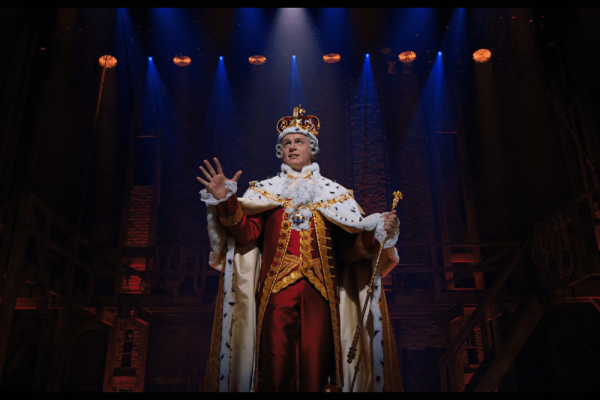AS NEW YORK CITY'S elected public advocate since 2019, Brooklyn native Jumaane Williams is the ombudsman for more than 8 million people in all five boroughs, charged with overseeing city agencies and investigating citizen complaints. And, starting in 2016, when he was a member of the New York City Council, he has performed in more than 40 staged readings of plays, most of them classical tragedies, with Theater of War Productions.
Starting in 2009 with a performance of scenes from “Ajax” and “Philoctetes” by Sophocles that highlighted the issue of military PTSD, Theater of War Productions has presented dramatic readings of classical Greek tragedies and other plays followed by guided discussions linking their themes to contemporary social issues. It now has a repertory of more than 20 works addressing a wide range of complex social issues—from racism to refugees, gun violence to sexual assault, frontline medical worker mental health to criminal justice, and more. Essential to the experience are post-performance discussions in which audiences engage with the play’s themes, creating cathartic release and deepening understanding. During the pandemic, Theater of War has gone online, reaching a vast international audience.
Andrea Couture: You’ve been a community organizer, done affordable housing work, been a city council member, and now serve as public advocate. Why have you added acting to the mix?
Jumaane Williams: Being the public advocate is a big responsibility, which I take very seriously, dedicating as much time as humanly possible. But acting has always been my first love, what I dreamed about as a kid. I went to Harlem School of the Arts and planned to major in theater at Brooklyn College, but went into film production, and ultimately majored in political science.
Theater is an awesome mix of the things I love. It examines all the great issues and presents them for people to think about. I love acting, and just as athletes have taken stands on civil rights, it provides me with a platform that I didn’t have in the 1990s when I had a few bit parts, cameos, and was typecast in some videos and commercials. That’s why I had wanted to make my own films—to change the narrative.
You are one of more than 200 actors who have worked with Theater of War Productions, including Academy Award winner Frances McDormand and Bill Murray. Does acting help you in your public service? Theater of War is simply amazing! Two days after Frances McDormand won the Academy Award, we performed together! [I first became involved] because Linda Johnson at the Brooklyn Public Library and Bryan Doerries at Theater of War wanted to have a conversation about gun violence. I was on the New York City Council at the time and known to be very involved in that issue. So they reached out to partner and promote, and I said, “Hey, I’m an actor!” It’s been an amazing journey. Very therapeutic for me and a way to continue in my art. I understand how it’s the same skill set that’s transferable from art to public life.
The oldest Greek theaters were adjacent to temples, and performances were linked with religious ceremonies. Do you see a connection between religion and theater—between today’s church/synagogue/mosque and the ancient proscenium? Does your Baptist Christian faith intersect with your participation in Theater of War? My church, St. Paul Community Baptist Church in Brooklyn, has a Maafa [commemoration] every year, an African Holocaust observance of the crossing from Africa to America, a two-to-three-hour production. I’ve done it three times straight. Again, it’s that same skill set. You get outside of yourself and enter another state. I’m more spiritual than religious, but I find some meaning and direction to get through like other people do when they come to a church of whatever kind.
You were diagnosed as a child with attention deficit hyperactivity disorder and Tourette syndrome and have been an outspoken advocate for people with those conditions. As a city council member you helped pass legislation to create an inspector general for the New York Police Department. You protested the detention of an immigrant rights activist at his regular check-in with ICE. How do your Christian beliefs influence your personal views and political positions? When I’m acting my Tourette symptoms disappear. The plays elicit a conversation about what is real life. But the discussion becomes easier and more honest because we’re talking about what happened thousands of years ago and that then becomes connected to what’s going on now.
My faith very much guides what I do. We must have justice and equality for all people. I’m clear about not having my personal views control other people’s rights—that must be protected. We must have harmony with others. If what I’ve been thinking doesn’t measure up to that, it has to be rethought and adjusted. That’s the totality of my experience and one of the reasons I keep honest about my Tourette’s and am upfront with people about what I’m thinking and doing. Because conversations behind closed doors are not protective of people—at least as far as I can determine. And my faith is a big part of that as well.
There is a theory that ancient theater originated as catharsis for veterans of war. The Theater of War’s guided, thematic post-performance discussions are intrinsic to its mission. Among the post-performance comments you have heard—from mothers who have lost children to police violence, frontline medical workers during the COVID pandemic, and others—what struck you most? [Discussion] is included in every Theater of War performance to create a space to express thoughts stimulated by these tragedies and to have people bear witness. Plays have elicited emotion and torn down guards consistently for thousands of years, erasing differences among people regardless of gender, race, economics, power.

Got something to say about what you're reading? We value your feedback!





